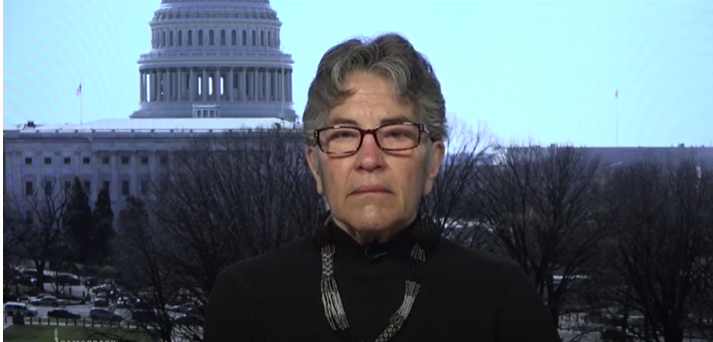After months of opposition, the Biden administration is now calling for “an immediate ceasefire” in Gaza — and the release of all hostages held by Hamas — in order to provide humanitarian aid and ease famine and suffering in the region.
Up until now, the United States had blocked all U.N. resolutions for a ceasefire in Gaza and refused to publicly hold Israel accountable. Now U.S. diplomats have introduced one of their own.
It’s a significant shift from the Biden administration. But the White House is also “playing with words,” IPS Middle East expert Phyllis Bennis told Democracy Now! “The first paragraph uses the language of an immediate ceasefire, but it doesn’t call for an immediate ceasefire. It recognizes the importance of a ceasefire,” Phyllis explains. As a result, the resolution isn’t actually enforceable.
Still, Phyllis credited movement pressure with driving the administration’s shift. “Here in the United States, we’re seeing a huge escalation in the opposition to the Biden administration’s insistence on continuing to support Israel” despite the crisis in Gaza, Phyllis says. “The pressure is mounting in ways that I’ve certainly never seen in decades of doing work on this issue.”
Watch the full segment below or at Democracy Now.
